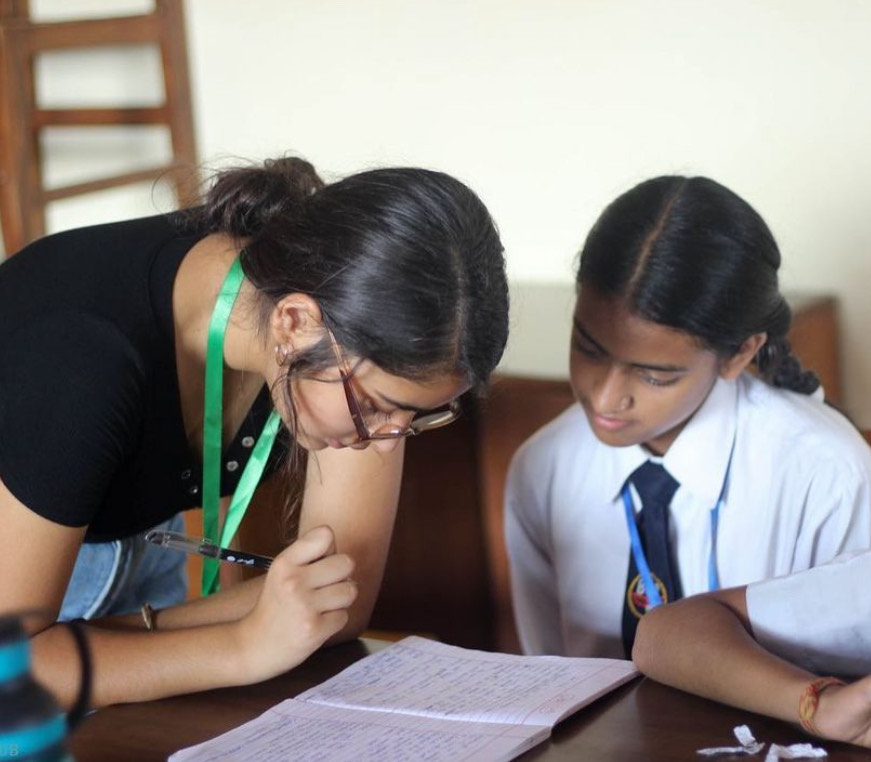Culture & Lifestyle
How Canopy Nepal is making a difference
The organisation is addressing the weaknesses in Nepal’s education system by encouraging creative thinking and lowering dropout rates through projects and mentorship.
Rishika Dhakal
About six years ago, while helping my cousin prepare for her grade three math exam, I noticed a glaring issue in Nepal’s education system. She struggled with a multiplication question that wasn’t in her notes, highlighting our schools’ lack of emphasis on creative thinking.
To address this problem, Mohit Rauniyar founded Canopy Nepal. Having experienced the flaws of the education system firsthand, Rauniyar aimed to promote an approach that encourages creative thinking and questioning rather than relying on rote memorisation.
The high student dropout rate and the gap between public and private schools also inspired the organisation’s establishment. “We identified two main issues: many students drop out of secondary school, and public schools often fail to provide quality education,” says Monal Bhattarai, managing director of Canopy Nepal.
Bhattarai recalls spending her vacations at the school where her grandmother taught. There, she engaged the students in educational activities and games. “I think that sparked my passion for working with students,” she says.
An educator by profession, Bhattarai joined Canopy Nepal as a facilitator six years ago. She worked her way up and now leads the organisation. Established in 2016, Canopy Nepal focuses primarily on two main areas of education: the high dropout rate of secondary school students and the lack of quality education in public schools. According to a study conducted by the organisation, 74 percent of students drop out when they reach secondary school. Income, child marriage, and labour migration have significantly contributed to the rising school dropout rate.
The education system doesn’t prioritise creativity or critical thinking. As a result, many students, especially those from underprivileged backgrounds, remain stuck in generational poverty. To address these issues, Canopy Nepal runs two major programmes: the ‘Canopy Nepal Scholarship Program’ (CANSHIP) and ‘Katha Bunaun’.
The CANSHIP programme is a long-term mentorship and scholarship initiative the organisation provides to students from grades six to twelve. “The initiative targets grade school students because many think that after taking the BLE in grade eight, school isn’t necessary anymore, leading to dropouts,” says Bhattarai. The programme also helps students understand which career paths are best suited for them.
Determined to improve the education system, Canopy Nepal also runs an annual psycho-social analysis and well-being checkup for its scholars. This assessment has helped students identify their strengths in various subjects while ensuring their overall well-being and progress.

Similarly, the ‘Katha Bunaun’ programme helps students express themselves through storytelling. It gives them the platform to share their stories and be themselves. Through this programme, the organisation has worked with over 14,000 students.
Bhattarai recalls an incident from a session in Kirtipur where a 12-year-old student wrote a story about a young girl’s abuse at home. The student switched between referring to the main character in the first and third person. When asked about the story’s inspiration, the student revealed it was based on her experience. The student had been experiencing abuse for the past two years.
“We witnessed powerful stories emerge by giving students this platform to express themselves,” says Bhattarai.
Canopy Nepal runs the ‘Katha Bunaun’ programme through multiple mediums. It has collaborated directly with schools and integrated the programme into their co-curricular activities. Similarly, in collaboration with the Kathmandu Metropolitan City office, the programme is currently running in 18 public schools within KMC.
Bhattarai says, “To enhance education quality, we run the ‘Katha Bunaun’ programme as part of KMC’s textbook-free Friday initiative, where we work with students for a whole year.” With a team of 30, the organisation supports 80 students through its scholarship programmes.
The students receive financial aid and weekly mentorship from their facilitators. These sessions allow students to discuss their friendships, relationships, and other issues. Each facilitator is dedicated to a single student, ensuring individual attention and comprehensive support. Many graduates of the CANSHIP programme secure jobs within six months of finishing high school, often earning more than their parents and breaking the cycle of generational poverty.
Similarly, several scholars have received full scholarships at prestigious universities such as New York University Abu Dhabi and the United World College.
Canopy Nepal has expanded globally, with branches in France and the US. The organisation’s founder, Rauniyar, was recognised as a Cheng Fellow at Harvard Kennedy School. Bhattarai was awarded the Global Youth Leader Award in March, a recognition that helped her build new connections and further develop the idea of Canopy USA.
Bhattarai discussed the organisation’s future goals, stating that the main objective is eliminating the student dropout rate. Additionally, she emphasised the aim of integrating ‘Katha Bunaun’ into every classroom across Nepal and introducing new learning methods.
Canopy Nepal's programme has expanded to other districts, such as Dhading, Sankhuwasabha, Gulmi, Dhanusha, Godawari, Lamjung, and Nuwakot. Currently working with the rural municipality in Dhading, the organisation aims to make education more accessible by reducing the cost of books and stationery or by identifying students who are not attending school.
The organisation works directly with schools to improve curriculums and provide additional support. So far, it has impacted over 14,000 students by improving their quality of education and enhancing self-expression and creativity.
Bhattarai says, “We especially focus on female students, as they are likelier to drop out early. We also target students from migrant families in Kathmandu, providing support to help them stay in school and succeed.”




 20.78°C Kathmandu
20.78°C Kathmandu















